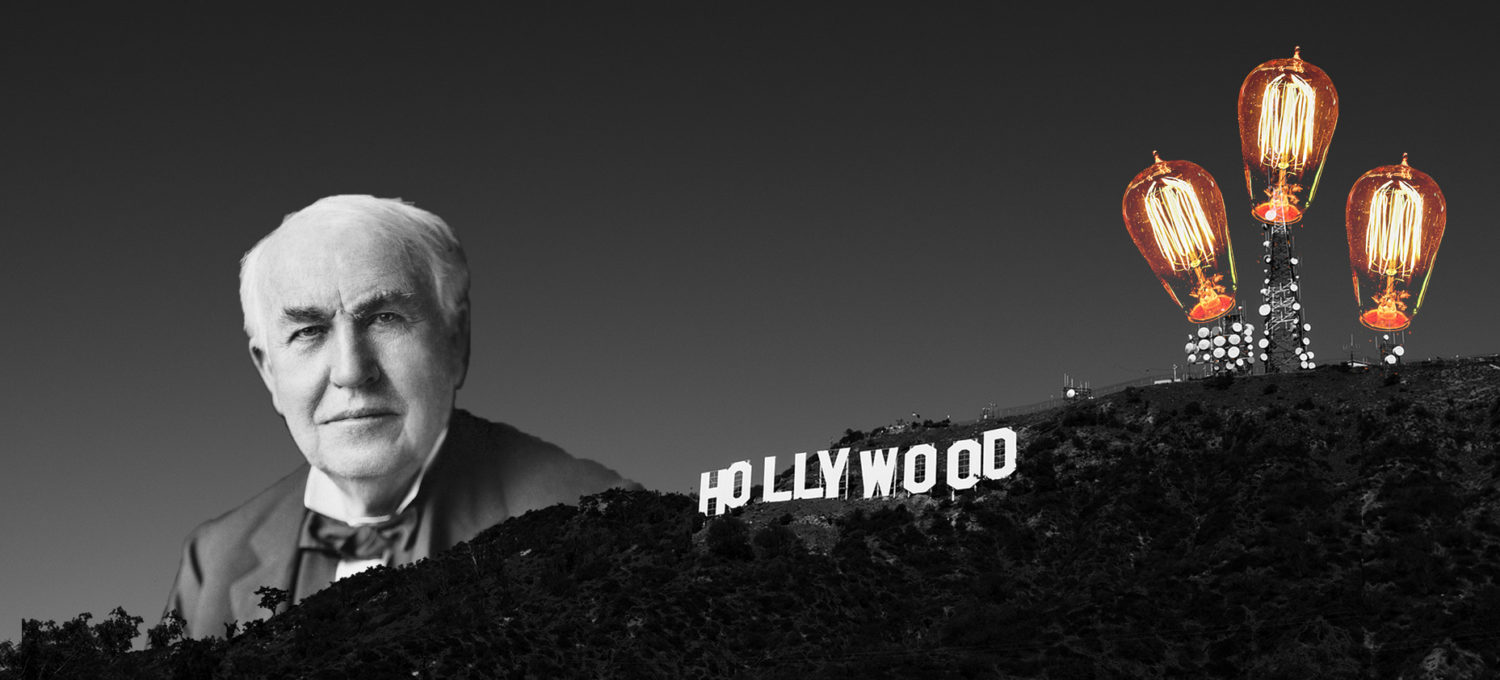At the dawn of the 20th century, the film industry was booming. The Film camera was recently invented and people at the time fell in love with moving pictures on a screen. Hollywood before The 20th century was a small town in the U.S. It just had a population of 500 people.
This is the story of Thomas Edison and how he played a major role in Hollywood’s origin.
Thomas Edison at the time was on the east coast in the city of New Jersey. Edison was the employer of William Dickson, the inventor of the cinematic projector called the Kinetoscope in 1892. Edison obviously was listed as the inventor in the patent.
With his money and influence, he acquired most of the important patents of the film camera and film projectors.
He then created “Edison studios” which was his own production company that made over a 1000 films.
He was notorious for filing infringement Lawsuits against other independent production companies, filmmakers and theaters which he thought were direct competition to Edison studios.
Demand for theaters and new films was off the charts and smaller filmmakers and production companies started budding up.
The MPPC
As the number of theaters and filmmakers grew, Edison created a conglomerate named MPPC (Motion Picture Patents Company).
He called upon a meeting with his rival productions and forced them to join the MPPC. The MPPC now was the owner of the patents of the individual production companies.
The MPPC served as a holding dock for all the patents, it set very restrictive rules on the filmmakers and theaters. At this point, the MPPC dictated everything, It also imposed fees and licenses on theaters and filmmakers.
The theaters and filmmakers had no choice, they could either pay the MPPC or not be in business at all.
This system set up by Edison threatened to kill the business of independent film producers and all the others who opposed Edison.
These independent filmaker included many of the founders of the major studios that still exist today, including Carl Laemmle of Universal Pictures and Adolph Zukor of Paramount Pictures.
Edison, at this point, was controlling most of the film industry and this started to annoy smaller producers and filmmakers so they started retaliating. The Filmmakers didn’t like the methods of Edison and The MPPC and wanted to go far away from new jersey and make their own films without restrictions.
Hollywood to the rescue.
This is where Hollywood comes in, it was a small town and was very cheap.
They could easily smuggle the film/theater equipment from the east coast by rail.
It was just a few miles away from the city of Los Angeles. It was also close to the Mexican border where they could hide the film equipment if Edison finds out.
Hollywood also had really warm weather and was a perfect location to film and produce movies.
But, most importantly the federal courts were less inclined to enforce patent rights on them, so even if Edison finds them, they will walk free without charges.
This was a mecca for the “independents” and soon enough more films started to be produced here. The local audience was really welcoming of them.
The ‘Independents’ were independent film production companies who despised Edison’s Reign and wanted to have creative freedom to produce and screen their own movies without any restrictions or censorship.
These independent studios later formed different production companies which we know today as Universal, Paramount and 20th-century fox.
Edison Pursued the “independents” for a long time, but to his vain, the federal court ordered the MPPC to disband.
That was when Hollywood we know and love was born.
In the end, Hollywood is what it is today because of Edison and the MPPC.
